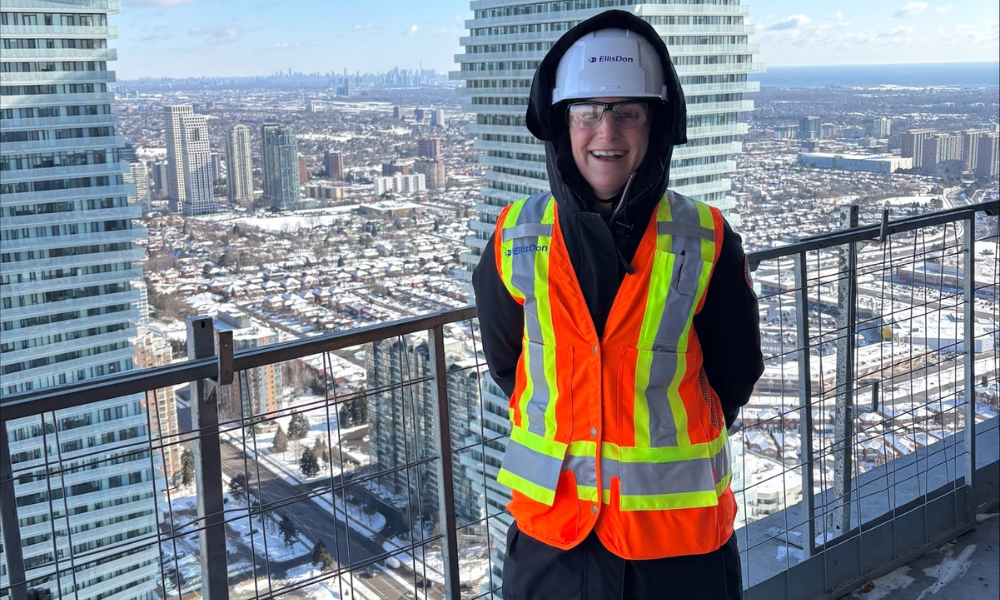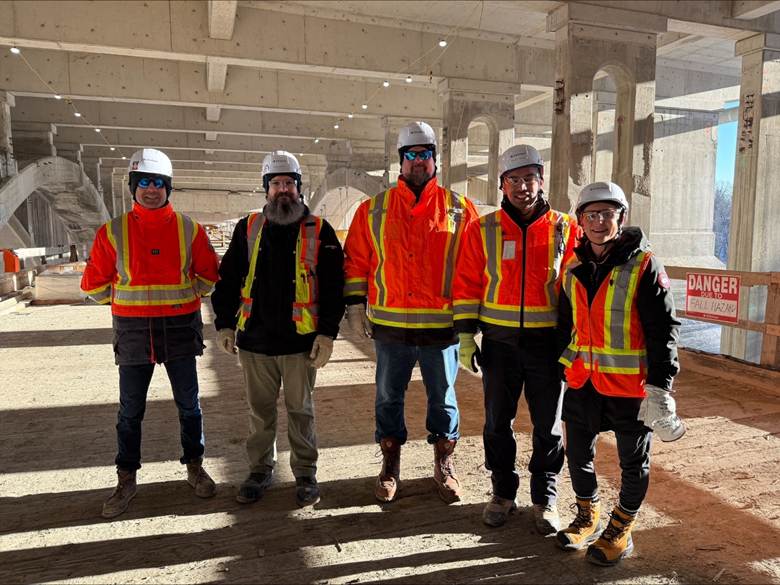'We see an increase in rising mental health concerns, but we also see such a significant stigma,' says EllisDon's first-ever mental health director

"It's quite humbling, you know, overwhelming at times and yet, extremely—I try to say it's remarkably fascinating, exciting," says Connie Ellis, reflecting on her appointment as EllisDon’s inaugural director of mental health.
With over 4,500 employees globally and a reputation for leadership in physical safety, EllisDon now aims to lead in a more complex arena: psychological health. Ellis steps into her newly created role at a time when construction sites across Canada are contending with rising mental health challenges. Her appointment signals a strategic shift in the way the company, and potentially the industry, addresses well-being at work.
A role built from the ground up
Although the construction sector has traditionally lagged behind on mental health supports, EllisDon is part of a small but growing cohort of firms developing internal expertise. Before Ellis’s arrival, mental health specialist Nadina Holca played a foundational role, particularly in data collection and awareness training.
“She has been instrumental at creating the data management system just to understand, how can we measure current state,” Ellis says. Holca also launched site visits, promoted mental health awareness during recognition events, and developed a mental health compliance training module set to roll out to all new employees. “She’s also been really big at promoting just again, the awareness around mental health at different sites.”
Establishing a baseline
Now, Ellis is partnering with the Centre for Addiction and Mental Health (CAMH) to establish a formal benchmark using Canada’s National Standard for Psychological Health and Safety. The standard outlines 13 psychosocial factors, such as psychological support and work-life balance, that affect workplace mental health.
“It’s imperative to understand what the current state is,” says Ellis. “That allows us... to get a baseline so that the mental health team has a better understanding on where we... prioritize and build out our roadmap.”
The assessment includes surveys and focus groups, and the insights gathered will help direct where EllisDon focuses its efforts. One key priority is equipping leaders with the competencies to support workers’ well-being. “I'm a big believer that not just safety, but not just physical safety, but psychological health and safety is really a top-down.”
But Ellis is quick to clarify that leadership doesn’t just mean corporate management.

Reaching the frontlines
“What’s unique about this industry is... I'm trying to always identify what is the level... who are the workers?” she says. “Is it the Supers? Is it the health and safety coordinators... the construction managers? It’s recognizing who are the informal or formal leaders on site.” For Ellis, frontline leadership—often referred to in corporate sectors as middle management—is a vital part of shaping a mentally healthy workplace culture.
EllisDon’s broader goal is to normalize mental health conversations in a workforce where stigma remains high. “Our data doesn't lie,” Ellis says, referencing national statistics that show elevated mental health risks in heavy industries like construction, mining, and oil and gas.
“There’s a lot of contributing factors that increase the risk... laborious work demands, perhaps insecurity in the future, physical demands, the strain,” she says. “We see an increase in rising mental health concerns, but we also see such a significant stigma.”
Call to the industry
Ellis says it’s time for the construction industry to treat psychological safety with the same seriousness as physical safety. “There's so much focus in heavy industries on safety... but when we look at actual suicide, overdoses, they're actually higher rates.”
The solution, she believes, lies in early intervention and culture change. “Mental illness, suicide, addiction—it doesn't happen in a vacuum,” she says. “If we can really promote that awareness... making sure workers know that it's okay to not feel okay.”
As she lays the groundwork for a new standard at EllisDon, Ellis is focused on prevention, education, and leadership. The stakes are high, but she’s undeterred. “You want to do your best... make that positive impression, not just on the leaders, but the workers.”





